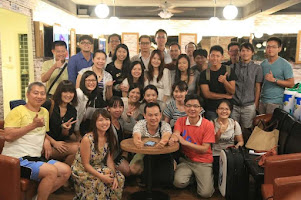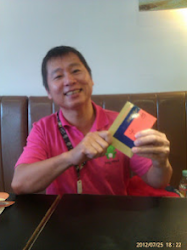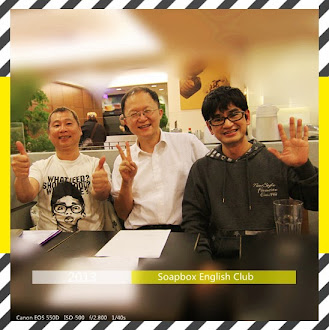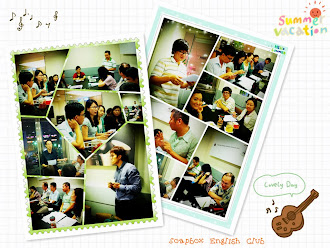陽光甜味咖啡館 Sun Sweet Cafe
We meet right here every Tuesday, Friday and Saturday evening.
Dare to dream!
勇敢夢!
LOVE YOURSELF!
愛自己!
歡迎您加入 英文/知識/交友 文章請點選欄位
婚姻 /友誼
凌晨12:40
No comments
Billy 最近參加兩個研討會 一個主題談婚姻 另一個主題談友誼
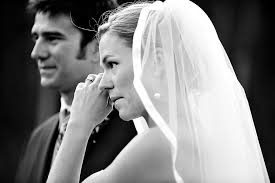

會中Billy談到Marry in haste repent at leisure 這個慣用句
朋友們不太清楚 Billy 在此再詳述一次
以下Billy介紹一些關於婚姻 /友誼的美國諺語 各位會員們請參考一下
Marry in haste repent at leisure匆匆結婚 後悔無窮
--- If you marry someone you do not know well, or decide to marry someone without first carefully considering what you are doing, you will probably regret it for a long time.
Example:
Sherry wanted some time to consider Tim's proposal of marriage; she had heard the saying, "Marry in haste, and repent at leisure."
a marriage made in heaven速配/天作之合
--- a marriage which is likely to be happy and successful because the two people are very well suited to each other
Janet and Poker had exactly the same likes and interests - it was a marriage made in heaven.
A friend in need is a friend indeed.患難見真情
----A true friend is a person who will help you when you really need help.
Example:
When Billy helped me with the exam, I really learned the meaning of
"A friend in need is a friend indeed."
a fair-weather friend---不能共患難的朋友/酒肉朋友
examples:
Everyone knows that Jim is only a fair weather friend.
人人知道吉姆是個勢利小人.
He has realized that Jack is a fair weather friend.
他已意識到捷克是個酒肉朋友.
1/29 Topic1.租個男朋友過年 Topic2.膠囊旅館
凌晨12:28
No comments
周二聚會
時間: 每周二晚上7:00~9:30
地點: 怡客咖啡 Ikari Coffee
(有新朋友來電問 說找不到英文文章*英文文章就在中文敘述之後 Billy為您開了捷徑 先有了概念後 讓您在閱讀英文部分 更能駕輕就熟)
會員好朋友們大家好: 2013年1月29日
將討論兩主題---
1/29 Topic1.租個男朋友過年 Topic2.膠囊旅館
* 2013/1/29 星期二 Aaron 將做3分鐘英文時事評論

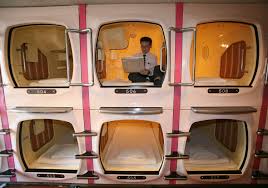

時間: 每周二晚上7:00~9:30
地點: 怡客咖啡 Ikari Coffee
新北市板橋區文化路2段311號
板南線江子翠捷運站2號出口旁
1/29 Topic1.租個男朋友過年 Topic2.膠囊旅館
租男友回家過年【中央社】
中國大陸「剩女商機」當道,大陸網站淘寶網出現「租男友回家過年」商品,1家業者提供的價格單顯示,1天的「打包價」是人民幣2000元(約新台幣9200元)。
根據這份價格單,這些「男友」陪吃飯、聊天都是依鐘點收費計價,例如陪逛街、陪看電影每小時收費人民幣30元,陪吃飯、「禮節性接吻」每次50元,晚上睡沙發每次600元。店主還明確指出「不提供同床服務」,若要陪上墳、陪拜祖先,需要雙方議價。
根據1家業者的「陪聊服務收費表」,若談的話題是以男性喜愛話題為主,計價是每小時10元;若是要以女性喜愛話題為主,每小時要20元。若是要求租來的男友只聽不說、還要「裝出特感興趣的樣子」,每小時要價30元,若要對方回答「諸如我和你媽掉河裡先救誰一類腦筋急轉彎問題」,每小時收費高達40元。
綜合大陸媒體報導,農曆春節腳步逼近,許多「大齡女青年」回家過年,難免遭遇老人嘮叨、詢問婚姻情況。目前,在淘寶網上輸入「租男友」,能找到上百件「寶貝」。
Questions:
1. Why do parents pressure their children to marry?
2. Will you take this job? And is it safe for take this job?
3. What do you think the value of marriage?
Rented boyfriends keep Chinese parents at bay By Xu Lin, China Daily
BEIJING--Taobao.com, China's largest online marketplace, is never short of bizarre offers.
And here is the latest one: boyfriends for rent.
A rental boyfriend can do the following: accompanying the girl to visit friends and families, go shopping, having meals and even getting a kiss out of courtesy. The charge is by the hour.
The services became hot with the approach of Spring Festival, the most important festival for family reunions.
In China, parents especially worry about unmarried daughters.
Single women will have to face the same old question at the family dinner table: Have you got a boyfriend?
And for those who haven't found their Mr. Right, renting a boyfriend emerges as a solution.
So, which men are willing to offer that service?
“I offer such a service only because I'm bored and know fewer female friends at work,” said Ding Hui, 27, a salesman in the plastic industry in Shanghai, with a monthly salary of more than 10,000 yuan (US$1,600).
He leased himself twice last year during Spring Festival and National Day.
His customers were two 28-year-old women.
He charged 3,000 yuan each, and the customer had to cover his round-trip tickets, accommodations and bought him clothes to make him look smart.
More than 260 rent-a-boyfriend services can be found on taobao.com, with the number climbing.
An anonymous female netizen, who claimed to have rented a boyfriend, said on the website: “My parents are very satisfied, so that my pressure is greatly reduced.” Another comment reads: “It's good that I've fulfilled the wish of my parents.”
Ding said trust building is very important, and the job is all about acting, which proved to be tough for him.
“I was exhausted as I had to flatter others for seven days and had to think before I spoke. I don't want to do it anymore,”he said.
According to him, he only held hands with thecustomers. As it's awkward to share a room with the customer, he would ask to sleep on the couch.
“Safety counts,” he said.
Chen, a 27-year-old from Huizhou, Guangdong province, who only gave her surname, couldn't agree more.
She opened an online agency on taobao.com last year, to offer fake girlfriends or boyfriends. She has more than 20 part-time workers all over the country.
“Mutual trust is a must. I have to ensure the safety of female workers,” she said.
She had about 20 orders in 2012 and only three this year. Many called to consult, but few make orders for fear of being deceived. Fees depend on the places and the length of time, ranging from 600 yuan to 1,500 yuan, with an additional agency fee.
She said most customers are from the countryside, because parents in big cities don't mind as much about their children being single.
According to Chen, customers had various reasons for renting a partner. One man broke up with his girlfriend a month before Spring Festival, and he had promised his family he would bring his girlfriend home. He turned to Chen for help.
Beijing Normal University associate professor of psychology Lin Xiuyun said it's not a good idea to rent a boyfriend or girlfriend to meet one's parents, who will be concerned about more questions, such as when they will get married.
“It's better to communicate with parents, who will be hurt more if the white lie ends with a break-up between the fake couple,” Lin said.
膠囊旅館 (維基百科)
膠囊旅館住宿設施,常見於日本。住客可使用的空間局限於一個大約2米 x 1米 x 1.25米,由注模塑膠或玻璃纖維製成的細小空間內,僅足夠睡眠。空間內通常設有電視等電子娛樂設備,在住客單元的入口處設有一塊簾以維持住客的私隱,但聲浪則難以完全隔絕,洗手間及淋浴設施需要共用。這些單元會堆疊起來,住客的行李需要存放在離單元較遠的儲物櫃中。膠囊旅館內亦設有餐廳,或自動售賣機等設施,方便住客。
膠囊旅館起源於日本,但在日本以外並未獲得廣泛接受。日本的膠囊旅館規模各異,部份只有約50個單元,較大的可多達700個單元,通常只供男性入住。部份膠囊旅館則分別設有男女使用的單元。進入膠囊旅館的住客,通常需更換浴衣及拖鞋。
膠囊旅館的最大優點是方便及價格相宜,一般每人每晚租金約4,000至5,000日圓,較正式的旅館廉宜。由於日本都市的房價較昂貴,不少定居於郊區的上班族,因加班或應酬而趕不上末班列車時,常以膠囊旅館做為淋浴及睡眠之所,有些膠囊旅館因此還販賣襯衫及襪子供替換。由於是日本特有,亦吸引不少外國自助旅行者為體驗而進住。
第一家膠囊旅館是位於大阪的Capsule Inn大阪,由日本建築師黑川紀章設計,位於大阪市梅田區,於1979年2月1日開始營業,當時的租金為每晚1,600日圓。
Questions:
1. What you think this capsule hotel ?
2. Is it safe?
Squeezing into a capsule hotel room in Japan (Associated Press)
TOKYO – Tokyo is known for being densely populated and crowded. Living space is at a premium; hotel rooms are small or expensive or both.
Enter the capsule hotel, where a tube-like pod barely bigger than a coffin offers a bed for the night at low cost.
The capsule concept has been around for at least 30 years, starting out as lodging for businessmen working or partying late who missed the last train home and needed a cheap place to crash.
And judging from the dark suits and ties of the patrons entering and exiting the Capsule & Sauna Century Shibuya in Tokyo, the cramped beds remain largely a businessman's special. But budget travelers and other folks curious about a unique lodging experience use them too. So I decided to try it on a trip to Japan this fall, along with a visit to the hotel sauna.
At 5 foot 10 and 175 pounds (about 1.8 meters tall and 70 kilograms), I am almost exactly average size for an American. But in Japan, I felt oafishly big. In a sushi restaurant, I nearly knocked over all the patrons trying to squeeze past to my seat. On the metro, my heft encroached on to a second seat, often meaning the only open seat on the train was the one next to me. The pajamas thoughtfully provided by some of the other hotels where I stayed left me feeling like a sausage.
The Century capsule hotel exacerbated this feeling. I felt cramped from the moment I checked in, when I traded street shoes for hotel slippers too small for my feet. The sole elevator serving 10 stories was slightly larger than an airplane bathroom. Speaking of bathrooms, each floor of the hotel has a shared bathroom with several stalls and urinals (no women were on the premises). In a seated position, my knees nearly touched the door to the stall.
Then there was the actual "room." I splurged on "Deluxe" accommodation for 4,000 yen (roughly $50). My tube was long enough for me to lie down with an inch or two to spare. I could sit up, barely. And there was enough space for my small daypack next to me.
The capsules line a darkened room, stacked in twos like bunk beds on the 10th floor of the hotel. With a potential 32 guests in one room — more on lower floors — it's quite crowded.
There is no room for luggage. Checking in, you get a key to a locker (think small ones at the gym) on the second floor. It's big enough to hang a suit and leave the contents of your pockets while you hit the shared sauna and bath.
I'm sure a therapist would brand me repressed based on my sporadic dreams of showing up to work or an important function in my pajamas or birthday suit. But what about the opposite? In my trip to the sauna, I showed up clothed to a place where everyone else was naked.
When I rode the elevator to the shower and bath area on the third floor, I wore the snug hotel-supplied boxers and robe. The elevator let out into an empty room with cubbies, stacked towels and sinks and mirrors. To get to the bath and sauna, you need to slide open a giant steamed-up glass door. On the other side is no-clothes land. I blithely entered clothed, to the consternation of the men inside.
So I went back, ditched the clothes in a cubby and re-entered. But what next? Two large baths and a series of hand shower hoses with small stools reminiscent of hair-cutting stations at a salon were in the outer sauna area and a door led to the dry sauna.
After a ridiculous, pantomimed, naked conversation with a local, I showered, seated at one of the wash stations. Then I went into the sauna. I've never been in a sauna with a TV before. Nice touch, though the programming seemed to be a Japanese combination of game show and infomercial for a weight loss program, probably aimed at me.
When my body core temperature neared critical, I went out to the bath. First the cold, which nearly sent me into shock. Then the hot, much better, but quite crowded. Another wash off at the showering station and I figured it was time to turn in.
Climbing into the capsule takes a bit of maneuvering. I kept imagining climbing into a torpedo tube on a submarine, but fortunately no one fired me out.
The TV mounted in the ceiling offered more game shows and an adult channel, along with headphones to better listen. A dimmable light and built-in alarm clock rounded out the amenities.
I closed the blind at my feet and conked out. With a few dozen other people coming into the room through the night and clambering into their own capsules, it made for a less-than-stellar night's rest.
Really, a capsule hotel seems just like a youth hostel, but with a tad bit more privacy. Rather than open bunk beds in a common room, you get a little enclosed pod in a common room. The sauna and shared baths were clean and refreshing, but the heavy smoking in many common areas was less so.
All in all, I'd say a capsule hotel is worth a visit just to say you've done it. But don't expect a restful night. And depending on your size, you might emerge feeling like a giant.
周一主題 1/28Topic 1.獸權Topic 2.咖啡好嗎?
凌晨12:27
No comments
周一主題 1/28Topic 1.獸權Topic 2.咖啡好嗎?
請注意!這是 周一的文章
02-22540821 02-25556076
“I believe that every animal, including pets and those used for experiments, has the right to live without being tortured,”Lee said.
請注意!這是 周一的文章
周一聚會地點: 麥當勞
新北市板橋區文化路二段173號
(江子翠捷運2號出口往前走100公尺左右)
時間: 每周一晚上 7:00~9:30
0976-217-450
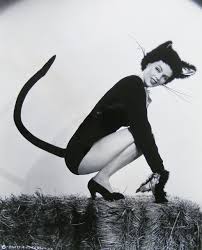
Questions:
1. Why are Animal Rights important?
2. Animals should not be used for medical experimentation?
3. How to Deal with a Stray Dog? and how solving stray dog problem?
4. What are arguments for and against medical testing on animals?
Animal activists want zero shelter deaths
By Joy Lee, The China Post
TAIPEI, Taiwan --Taiwan animal shelters should aim to end all deaths as soon as possible, animal rights campaigners said yesterday.
Singer Mina Lee (李宓) dressed as a cat and was joined by four male models in dog costumes to raise awareness of animal protection yesterday at an event held by the Animal Protection Administrative Supervising Committee (APASC, 動物保護行政監督委員會), under the Life Conservation Association (LCA, 關懷生命協會).
Lee said that she hopes through body painting and artistic expression she can make people consider the fate of animals.
She added that “it is important for everyone to learn how to respect life.”
APASC chief Ho Tsung-hsun (何宗勳) said that even though people started to pay attention to issues about animal protection, more cases involving the mistreatment and torture of animals appear every year.
“Except for the issue of inappropriate treatment of pets, we also need to focus on issues regarding animals used in science and for food,” Ho said.
”It is urgent for people to fight for animals' right for them.”
According to the APASC, statistics from the Council of Agriculture show that the death rate in public animal shelters in 2011 — including those which were euthanized — was 76.1 percent.
“Human beings do not have the right to intervene in animals' rights to live,” Ho said, “so we want to promote the ideas of improving animal shelters, encouraging adopting animals, and develop the trap, neuter, release (TNR) program in order to protect animals.”
“Pa-Shih,” one of the four male models attending the event, said that he grew up surrounded by small animals —including a monkey — and he believes that we can learn a lot from them.
Lee has taken part in other campaigns and protests before. She was one of a group of more than 20 people to launch the first naked protest against the use of nuclear power in Taiwan when she was a college student in 2006.
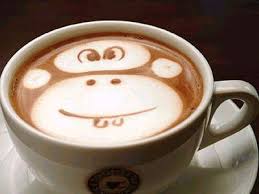
Some studies in the past did not take into account the connection between drinking coffee and smoking cigarettes, which do contain carcinogens, Hensrud said.
Questions:
1. Is coffee healthy?
2. Is Coffee Good or Bad For You?
3. How Drinking Coffee Could Improve Your Health?
4. Share your opinions about Coffee Addiction - Caffeine Side Effects & Dangers.
Coffee By Elizabeth Landau, CNN
Coffee may prevent type II diabetes and Parkinson's disease, evidence shows
It may also have anti-cancer and antidepressant effects
Some people can't tolerate coffee because of side effects
Doctor: If you don't drink coffee and want to start, ease into it
(CNN) -- If you can't get through your day without a coffee break or two, here's good news for you: What scientists know so far suggests coffee may help you stay healthy.
As usual with medical research, the operative word is "may."
It's hard to know for sure whether coffee is really causing good effects -- lifestyles or behaviors associated with coffee consumption may also influence health. Also, different people have different tolerances for coffee -- it can have short-term side effects that make people steer clear of morning brews.
So, doctors aren't quite convinced enough to prescribe coffee -- but they probably don't need to, because so many people indulge in it anyway.
Coffee could cut risk of skin cancer
SGMD tip: Chasing life with coffee
Does drinking coffee lower cancer risk? The point is: In general, regular coffee drinkers won't be discouraged from continuing the habit, although there are exceptions.
"For most people, for people who don't experience the side effects, the benefits far outweigh the risks," said Dr. Donald Hensrud of the Mayo Clinic.
Why would coffee be good?
More is known about the overall association between coffee and positive health effects than about the mechanism behind it, said Dr. Alberto Ascherio, professor of epidemiology and nutrition at the Harvard School of Public Health.
Antioxidants are one potential reason that good outcomes are seen from coffee. Our bodies produce oxygen radicals, which are damaging to DNA. Antioxidants prevent them from doing damage, Ascherio said.
Although antioxidants are found in fruits and vegetables, research has shown that coffee is the top source of antioxidants for Americans.
Caffeine itself may also contribute to coffee's positive effects on brain health. That may be because caffeine is an antagonist to adenosine receptors. These receptors normally slow down neural activity when the chemical adenosine binds to them, producing a sleepy feeling. But if caffeine binds to the receptors, the activity of neurons speeds up.
Coffee also appears to lower levels of insulin and estrogen, which is perhaps why a study last year found a lower risk of endometrial cancer in coffee-drinking women. Insulin also plays a role in prostate cancer, another disease coffee may help stave off.
Perfect your coffee pour-over
What good it may bring
The evidence is fairly strong for coffee preventing type II diabetes and Parkinson's, and reasonably good for antidepressant effects, too, doctors say.
Just in the last few months, several new studies have been published highlighting other possible benefits of coffee. Again, none of them prove that coffee causes any effects at all; they are just associations.
People who drink two 8-ounce cups of coffee daily appear to have an 11% lower risk of developing heart failure, compared to noncoffee drinkers. That's according to a meta-analysis published in June in the American Heart Association's journal Circulation: Heart Failure, based on pooling the results of five studies. The researchers did not take into account the strength of coffee, what time of day it was drunk, or whether it was caffeinated -- factors that could be related.
Coffee drinkers may also be protecting themselves against basal cell carcinoma, the most common form of skin cancer, according to a July report in the journal Cancer Research. Other caffeinated beverages also seemed to reduce the risk of this slow-growing cancer. But scientists don't yet know why this effect was observed.
Increased coffee consumption also is associated with longer life, according to Research in the New England Journal of Medicine. Again, no one knows what about coffee would make people live longer, but Ascherio theorizes it could be the protection against type II diabetes, Parkinson's, depression and suicidal tendencies.
Some of the strongest evidence comes from studies on type II diabetes. According to a 2009 meta-analysis, the risk of type II diabetes goes down with each cup of coffee consumed daily. Additionally, a 2007 meta-analysis found a correlation between increased coffee consumption and lower risk of liver cancer. But it's not enough to tell anyone who doesn't already drink coffee to start.
There have not been any large randomized controlled trials regarding coffee's health benefits, or even to see whether caffeinated or decaf is better for you. Without this kind of research, there will be uncertainty.
While perhaps scientifically interesting, such an investigation hasn't happened because of the economics involved, Ascherio said. A trial could cost in the tens of millions of dollars. Pharmaceutical companies aren't in the business of selling coffee, and coffee makers don't need a study to market their products -- people who like coffee buy it anyway.
How much coffee a person can drink daily varies widely; some people don't feel any side effects.The optimal daily dose of coffee varies widely, depending on the person. Some can't drink it at all. Others tolerate six to eight cups a day.
As common sense might suggest, the greatest overall benefits appear to be in people who drink coffee at moderate levels: two to three cups a day. But there are exceptions: A May 2011 study found that men who drink six or more cups a day had a decreased risk of fatal prostate cancer.
The bad stuff
Coffee hasn't always been hailed as such a great thing. It's also not for everyone.
Doctors may never consider coffee a standard recommendation because of individuals' varying susceptibility to side effects, said Hensrud.
Those include headaches, insomnia, heartburn and palpitations, not to mention urinary urgency. People who get fast heartbeats may need to steer clear of caffeinated coffee, too. Others don't drink coffee because it irritates their stomachs.
Famously, coffee got a bad reputation from research in the early 1980s connecting it to pancreatic cancer. But more recent studies have not found the same link, according to the American Cancer Society.
Some studies in the past did not take into account the connection between drinking coffee and smoking cigarettes, which do contain carcinogens, Hensrud said.
Different people metabolize caffeine differently, so some people can have a cup of coffee at night and fall asleep right away, while others need to keep their distance from java for several hours before bedtime to avoid insomnia.
Coffee that's boiled -- popular in Scandinavia, for instance -- will increase bad cholesterol; espresso has the same effect, Hensrud said. But filtering regular coffee reduces those cholesterol-raising substances.
Also, of course, if you don't drink black coffee, cafes will gladly charge you for all kinds of additives to dilute the bitter flavor and strength.
Some milky, sugary coffees may contain upwards of 500 calories -- particularly if they begin with the sound "frap." So, if you think you're doing your body a favor with these treats, health detriments of the added calories and fat may cancel out coffee's magic.
The bottom line
While all the evidence taken together suggests benefits from coffee, the burden of proof still isn't quite strong enough, because these are associations, not a demonstration that coffee causes anything.
"For a public health recommendation, you've got to be pretty darn sure," Hensrud said.
If you don't particularly like coffee but you're thinking about starting to drink it, beware: A sudden change from no consumption can trigger bad consequences, just like doing a really hard workout after you've been a couch potato, Ascherio said. Both situations -- going from nothing to a lot -- can increase risk of heart attack and stroke.
So, if you do feel like trying coffee, start gradually, Ascherio said. It may be that people who experience negative side effects from coffee won't reap the same long-term benefits from it, anyway.
"If you consume coffee, enjoy it," Hensrud said. "But I wouldn't necessarily recommend taking it up if you don't like it."
訂閱:
文章 (Atom)






